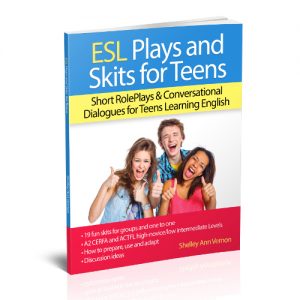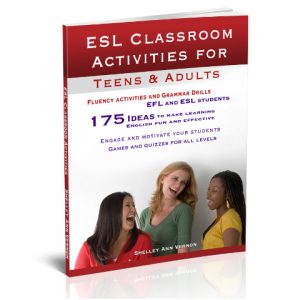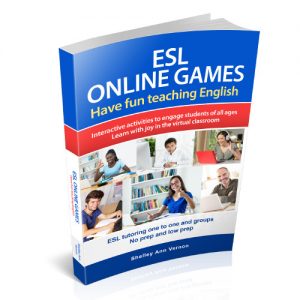Adapting textbooks is common since they are often too difficult. This is not the textbook’s fault; instead, students quite often lag behind the level they are supposed to have acquired. Therefore, you may be expected to work with too advanced a textbook. However, students can become demotivated and unhappy when their coursebook is too challenging.
Simplify
Focus on the essential elements of a unit. Simplify and aim to teach the key vocabulary and grammar.
Before opening the textbook, prepare students with supplementary activities such as vocabulary games and grammar games. Present and drill the primary grammar and vocabulary topics from the unit first.
Break down the difficulty
When students open the book, ask them to search for five vocabulary words or look for every occurrence of a grammatical structure. Consider putting weaker students in pairs for this. Or play in teams. As students find a word or phrase, they might write it on the board and give their team a point.
Use Jigsaw reading with parts, but not all of the text.
First, ask students to each write a question about the text. Then, tell students they have one more minute to read the text. Now have students close their books. Next, students form teams and attempt to answer each other’s questions from memory. Finally, go through all the questions. The teacher may write these on the board and leave them visible. All those answered correctly are taken out of the game. Those unanswered remain on the board. Now give students one minute to look at the text again. Go through the questions left unanswered. See which team has the most points. It’s much more interesting for students to write their own questions. And it’s much more challenging to play a memory game than just read boring facts from a text.
Be selective
Adapting textbooks can simply entail making a selection from the teaching material. Please don’t feel you have to teach everything in the unit because usually units are dense, and only the best students, who study independently, will learn it all!
If you have some motivated students who really want to get on, give them these tips for their private study, and be there to help them, guide them, even mark extra work if they want to do it.
https://www.teachingenglishgames.com/how-can-you-improve-your-english-and-become-bilingual
Games and activities
My games books for children, teens and adults have plenty of ideas to help with adapting textbooks. So, if you have beginners, start by using all the games in steps one, two, and three. Those are drill-type games for beginners, for new vocabulary or grammar at all levels. Steps 4, 5 and 6 are fluency activities; many of those are for intermediates and up, but that said, if you look in the detailed index, each game has a level: B, I, A. (Beginners, Intermediate, Advanced). So that will allow you to pick games easily from the other steps too.
If you want to learn more about drill-type games and fluency activities, check my post on PPP and TBL. PPP is an acronym for present, practise, produce while TBL stands for task-based learning.
Email me again once you get into class if you have questions – I’m here to help – no probs!
Kind regards
Shelley Ann Vernon
-
Sale Product on sale
 Plays and Skits for Teens
Plays and Skits for Teens€19.97€15.33Rated 5.00 out of 5 based on 1 customer rating -
Sale Product on sale
 Games and Activities for Teens and Adults
Games and Activities for Teens and Adults€19.97€15.33Rated 5.00 out of 5 based on 12 customer ratings -
 ESL Online Games€19.97Rated 5.00 out of 5 based on 4 customer ratings
ESL Online Games€19.97Rated 5.00 out of 5 based on 4 customer ratings



